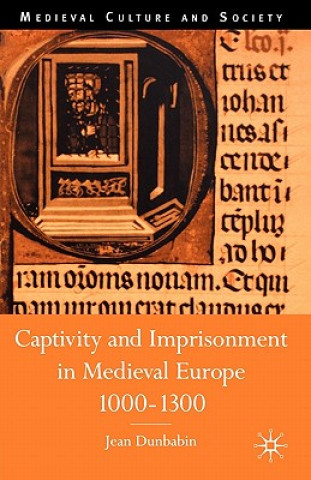
Versand
Kaufberater





Passt nicht? Macht nichts! Bei uns ist die Rückgabe innerhalb von 30 Tagen möglich
 Geschenkgutschein
In einem beliebigen Wert
Geschenkgutschein
In einem beliebigen Wert
Mit einem Geschenkgutschein können Sie nichts falsch machen. Der Beschenkte kann sich im Tausch gegen einen Geschenkgutschein etwas aus unserem Sortiment aussuchen.
Captivity and Imprisonment in Medieval Europe, 1000-1300
 Englisch
Englisch
 138 b
138 b
30 Tage für die Rückgabe der Ware
Das könnte Sie auch interessieren


Captivity and Imprisonment in Medieval Europe, c.1000-c.1300 explores the history and significance of prisons, both lay and ecclesiastical, in the high middle ages. In so doing, it charts the origin of the kind of prison that was found across western Europe until the great reforms of the modern period. Jean Dunbabin adeptly explains what captors hoped to achieve by restricting the liberty of others, the means of confinement that were available to them, and the conditions of incarceration. She goes on to investigate the increasingly close link between captivity and suspected criminal behaviour, and traces the way in which imprisonment slowly emerged as a conceptually distinct element within captivity. At the same time, Dunbabin pinpoints the changes, both judicial and social, that created the need for prisons - first as places for detention before trial and then (to a lesser extent) for punishment - and assesses the role of the church in helping to define their function. The book discusses the means of release open to some captives, and ends with a glance at medieval prison literature. Through the analysis of power as manifested in the restraints artificially imposed by one person, or group of people, on the freedom of another, the author also casts some indirect light on the evolution of the state in the medieval period.
Informationen zum Buch
 Englisch
Englisch
Kategorie


 Kontakt
Kontakt Wie einkaufen
Wie einkaufen



































